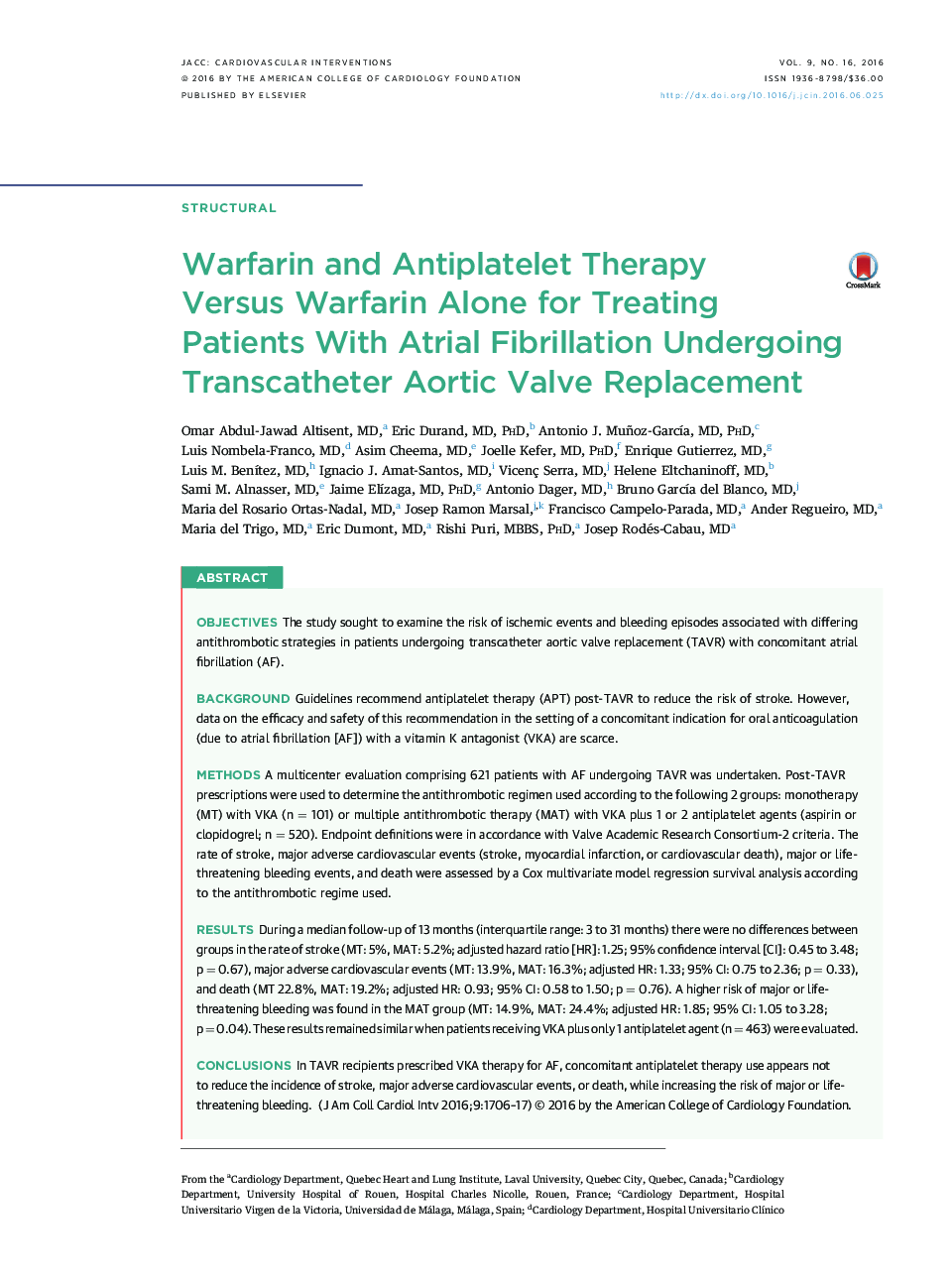| کد مقاله | کد نشریه | سال انتشار | مقاله انگلیسی | نسخه تمام متن |
|---|---|---|---|---|
| 5980437 | 1176988 | 2016 | 12 صفحه PDF | دانلود رایگان |

ObjectivesThe study sought to examine the risk of ischemic events and bleeding episodes associated with differing antithrombotic strategies in patients undergoing transcatheter aortic valve replacement (TAVR) with concomitant atrial fibrillation (AF).BackgroundGuidelines recommend antiplatelet therapy (APT) post-TAVR to reduce the risk of stroke. However, data on the efficacy and safety of this recommendation in the setting of a concomitant indication for oral anticoagulation (due to atrial fibrillation [AF]) with a vitamin K antagonist (VKA) are scarce.MethodsA multicenter evaluation comprising 621 patients with AF undergoing TAVR was undertaken. Post-TAVR prescriptions were used to determine the antithrombotic regimen used according to the following 2 groups: monotherapy (MT) with VKA (n = 101) or multiple antithrombotic therapy (MAT) with VKA plus 1 or 2 antiplatelet agents (aspirin or clopidogrel; n = 520). Endpoint definitions were in accordance with Valve Academic Research Consortium-2 criteria. The rate of stroke, major adverse cardiovascular events (stroke, myocardial infarction, or cardiovascular death), major or life-threatening bleeding events, and death were assessed by a Cox multivariate model regression survival analysis according to the antithrombotic regime used.ResultsDuring a median follow-up of 13 months (interquartile range: 3 to 31 months) there were no differences between groups in the rate of stroke (MT: 5%, MAT: 5.2%; adjusted hazard ratio [HR]: 1.25; 95% confidence interval [CI]: 0.45 to 3.48; p = 0.67), major adverse cardiovascular events (MT: 13.9%, MAT: 16.3%; adjusted HR: 1.33; 95% CI: 0.75 to 2.36; p = 0.33), and death (MT 22.8%, MAT: 19.2%; adjusted HR: 0.93; 95% CI: 0.58 to 1.50; p = 0.76). A higher risk of major or life-threatening bleeding was found in the MAT group (MT: 14.9%, MAT: 24.4%; adjusted HR: 1.85; 95% CI: 1.05 to 3.28; p = 0.04). These results remained similar when patients receiving VKA plus only 1 antiplatelet agent (n = 463) were evaluated.ConclusionsIn TAVR recipients prescribed VKA therapy for AF, concomitant antiplatelet therapy use appears not to reduce the incidence of stroke, major adverse cardiovascular events, or death, while increasing the risk of major or life-threatening bleeding.
Journal: JACC: Cardiovascular Interventions - Volume 9, Issue 16, 22 August 2016, Pages 1706-1717